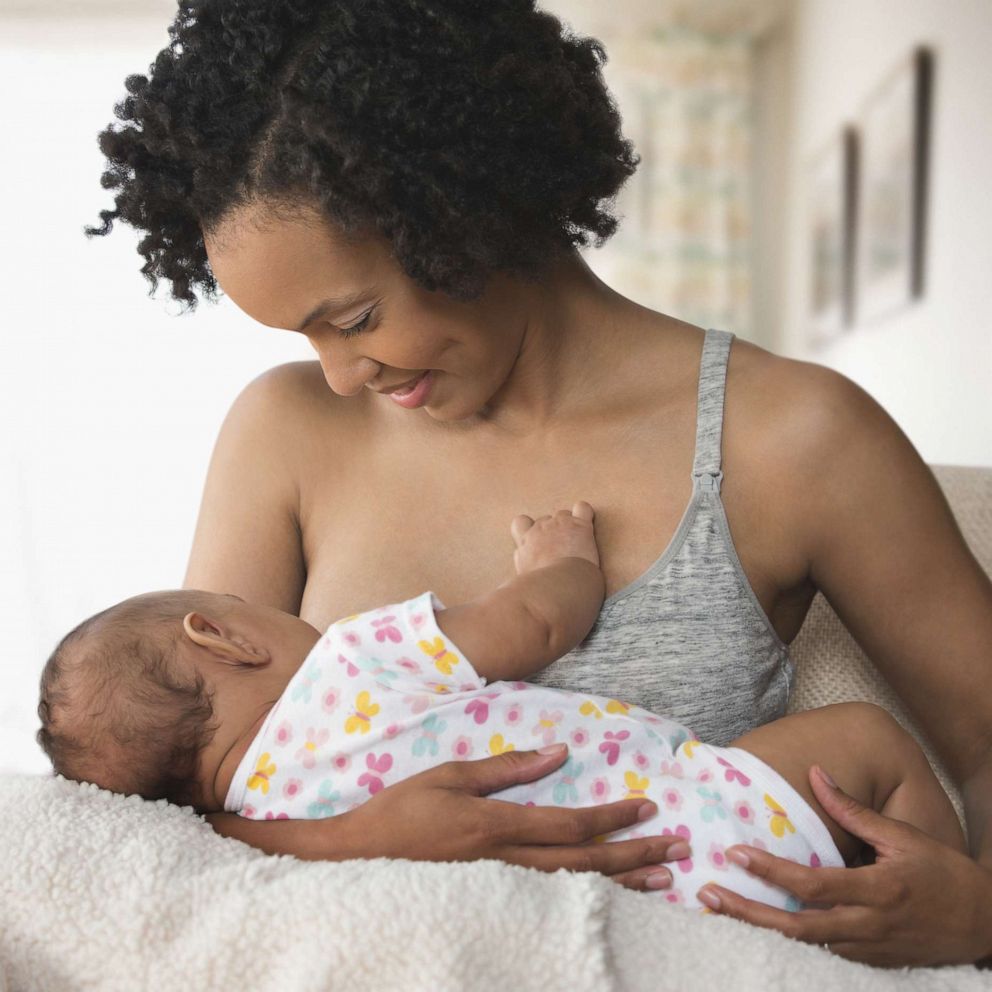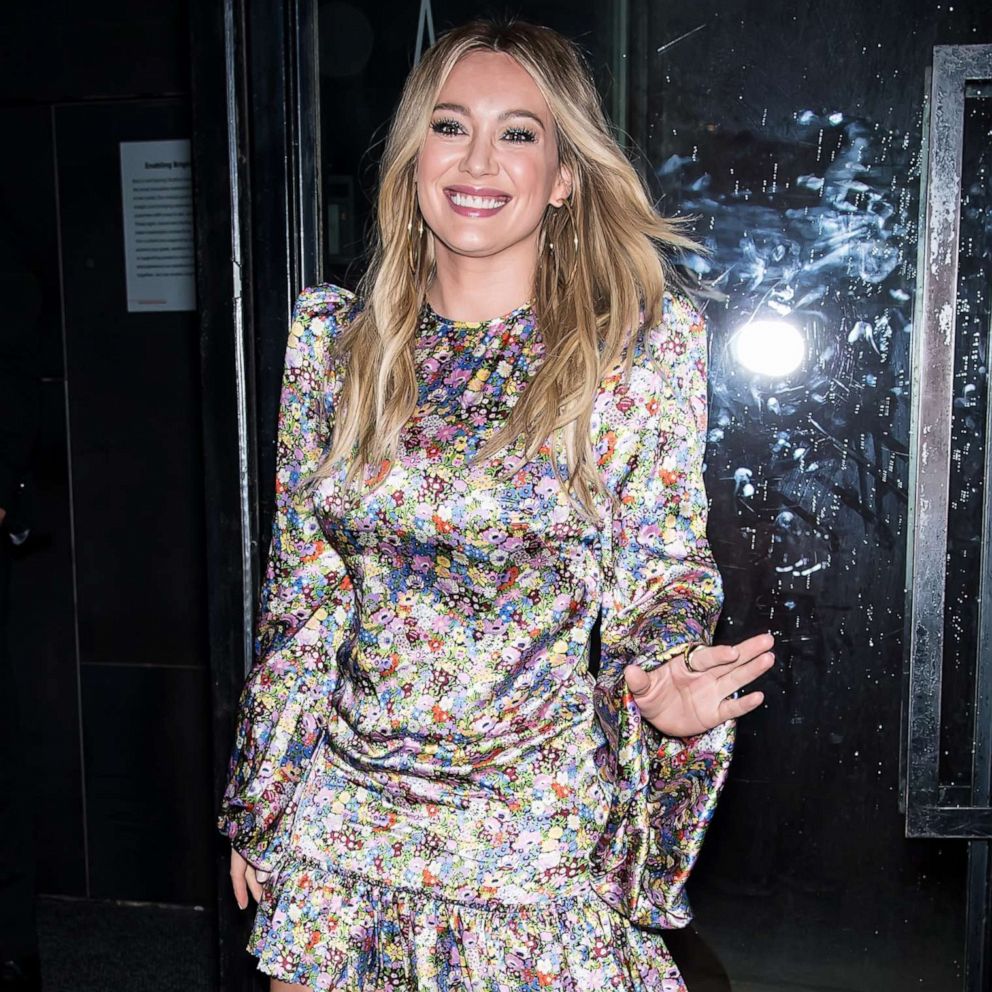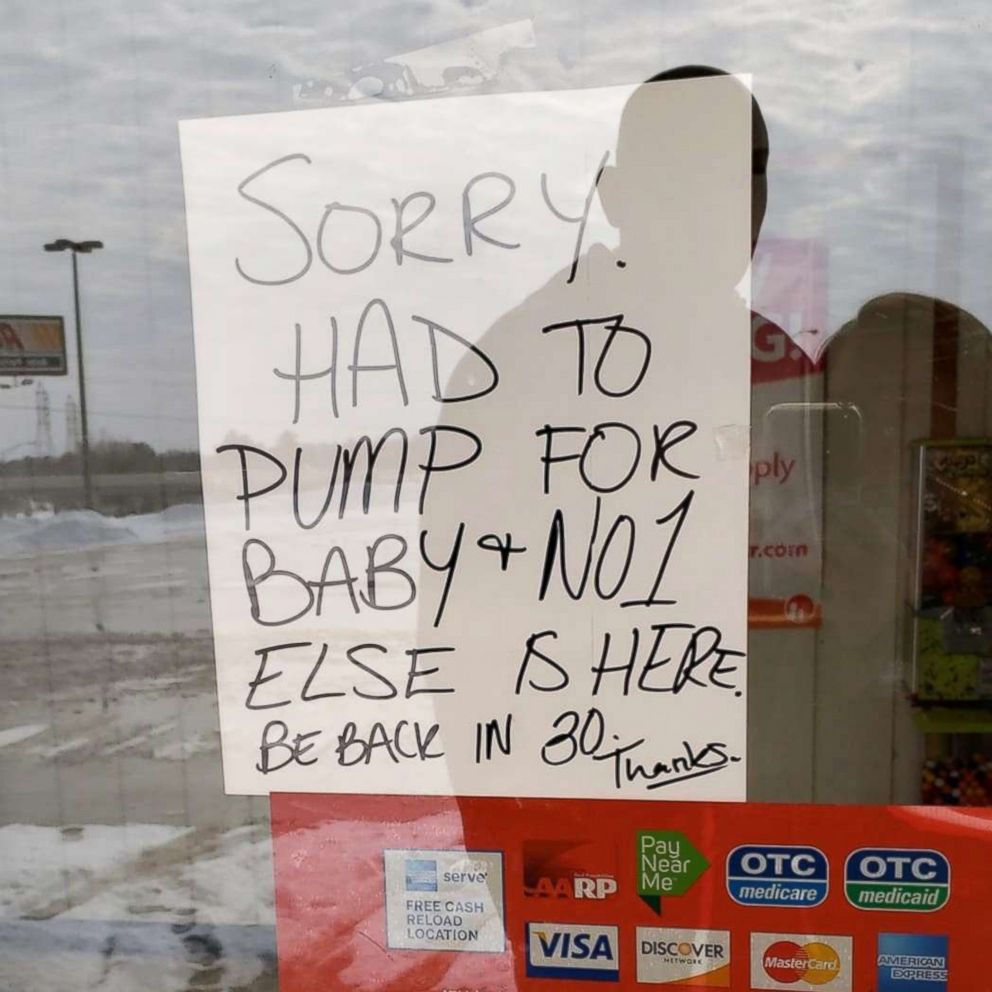Breastfeeding mom says she was delayed by airport security
Emily Calandrelli said she wanted to show how unsupported working moms can feel.
A nursing mom who took to Twitter to share a difficult experience she faced while trying to fly is receiving support from other moms who said they faced similar challenges trying to travel while breastfeeding.
In a series of tweets that went viral Tuesday, Emily Calandrelli, the host of Netflix's "Emily's Wonder Lab" and author of "Reach for the Stars," described traveling through security at Los Angeles International Airport with two ice packs that she intended to use after pumping breast milk.
Calandrelli, a mom of two, including a 10-week-old son she is breastfeeding, wrote that it was her first work trip since welcoming her second child. She told "Good Morning America" she had hoped to pump her breast milk prior to her five-hour flight from Los Angeles to Washington, D.C., and use the two ice packs to make sure the milk didn't spoil.
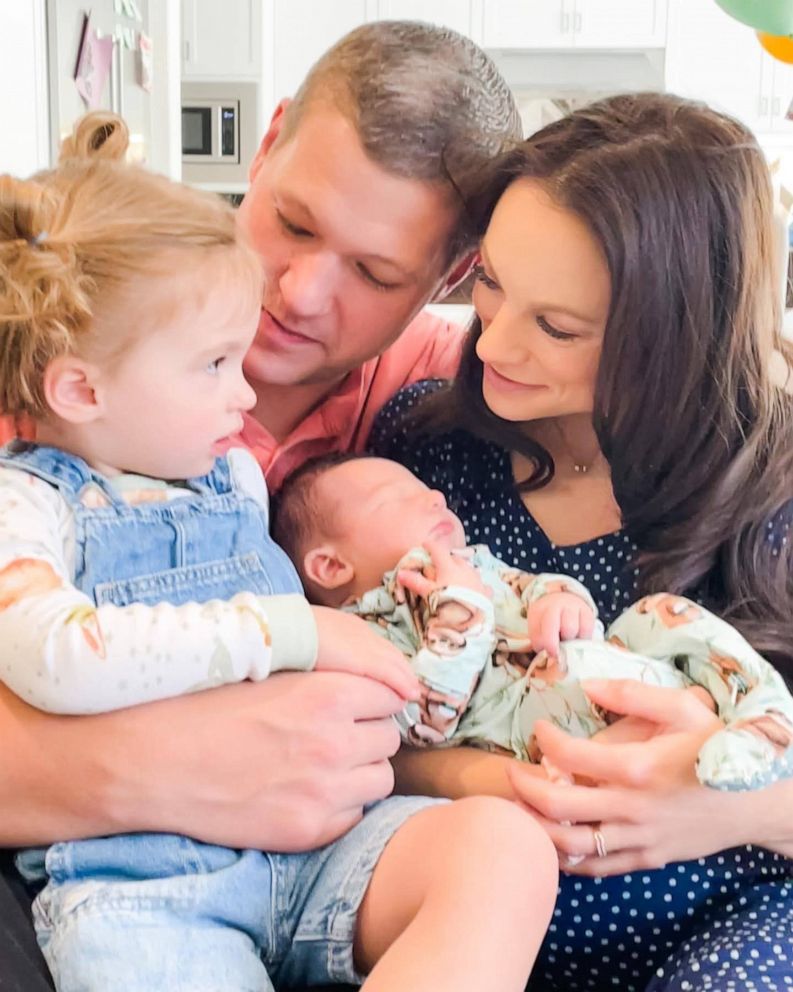
Lactating women may choose to travel with a breast pump and other supplies, like ice packs, in case they need to pump en route to their destination or to avoid complications like mastitis, a type of infection that causes inflammation in the breasts.
The American Academy of Pediatrics recommends that if possible, infants be exclusively fed breast milk for about the first 6 months. They can then continue to be fed breast milk along with appropriate complementary foods for 1 year or longer. The World Health Organization and UNICEF recommend breast milk be available for children for their first 2 years and beyond.
According to Calandrelli, two male Transportation Security Administration agents told her she could not bring the ice packs she brought with her to protect her breast milk through security because one of them was not frozen solid. Calandrelly said a third male agent told her if she had breast milk or her child with her, it "wouldn't be an issue."
"He asked me a second time, he said, 'Well, where's the baby?'" Calandrelli told "GMA." "And at that point, I felt like I was going to have a mental breakdown because I was like, 'You've already asked me. I'm traveling away from my child.'"
She said she asked to speak with a female agent, possibly one who was a mother, and was told she was speaking with the manager and that a female agent would tell her the same.
Calandrelli described the experience as "embarrassing" and said she felt the agents treated her like a "petulant child."
"They escorted me away from security to check my cooler packs," she said. "And then as I was leaving, they said something along lines of like, 'And don't try to sneak it through a second time because this is all just going to happen again.'"
Calandrelli told "GMA" she ultimately had to check her bag with the ice packs in them and did not pump until several hours later, when her flight arrived in Washington, D.C.
Moms share their own travel experiences
Calandrelli said hundreds of mothers have sent her messages and replied to her social posts.
"Moms have said in the comments that there are some TSA agents that made them throw away their breast milk supply, because it wasn't frozen," she said. "Multiple people have said that TSA agents have made them test their own breast milk to prove that it was safe."
This made her feel, she said, like it wasn't "just an isolated incident."
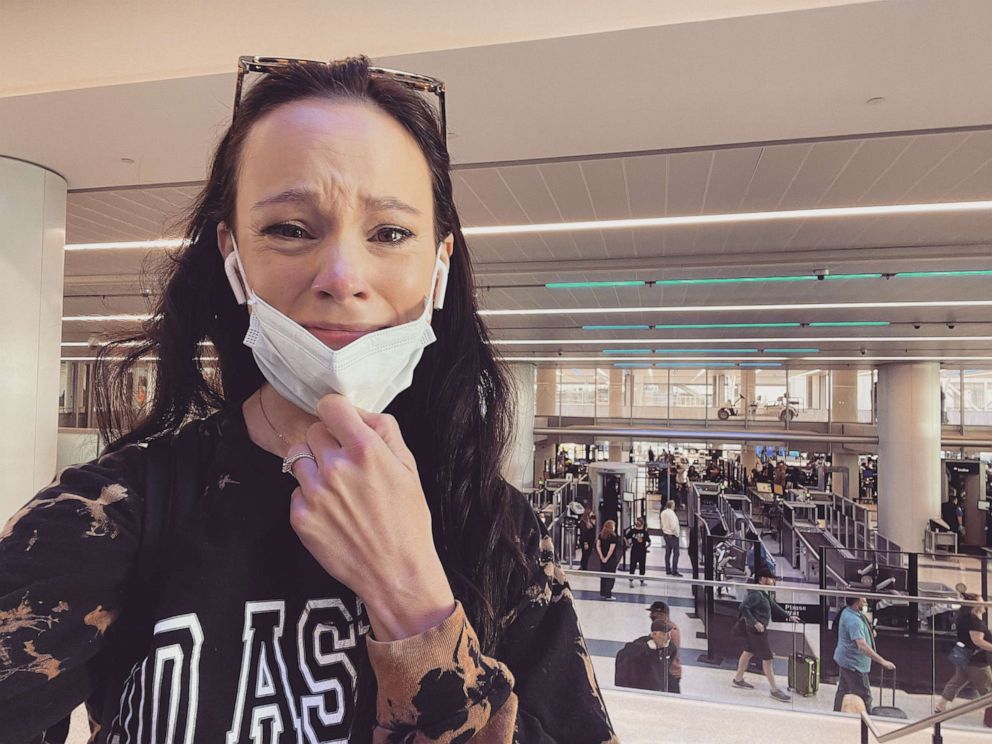
"I remember flying to NYC from LAX without my daughter when she was 5 mos old and took my pump with me thru security. Two TSA agents as I'm standing there: 'I wouldn't want to sit next to her on the plane.' (Laugh) Weird to say and so telling of how they view mothers," tweeted one mom.
Another shared their own negative experience, writing in a tweet, "I asked for breast milk to be hand checked instead of going through the scanner & TSA said it wasn't allowed. I explained that they had done it the week before and they told me I was lying. There is more to the story but overall it was a horrific experience I was in tears."
As Calandrelli pointed out in her tweets, the TSA does not require moms who are pumping breast milk to travel with their kids. The federal agency also permits breast milk to be transported in carry-on bags and liquids in excess of 3.4 ounces need to be declared to TSA agents. Ice packs are also allowed to be transported in carry-on bags, according to guidelines on TSA's website.
"GMA" reached out to the TSA for comment and an agency spokeswoman shared the following statement: "We take all traveler concerns about our security checkpoint screening processes seriously and are committed to ensuring that every traveler is treated respectfully and courteously. We will look into all circumstances involving this situation and address it appropriately."
TSA also confirmed it is reviewing the incident Calandrelli described and could implement additional training or screening processes depending on the investigation's conclusion.
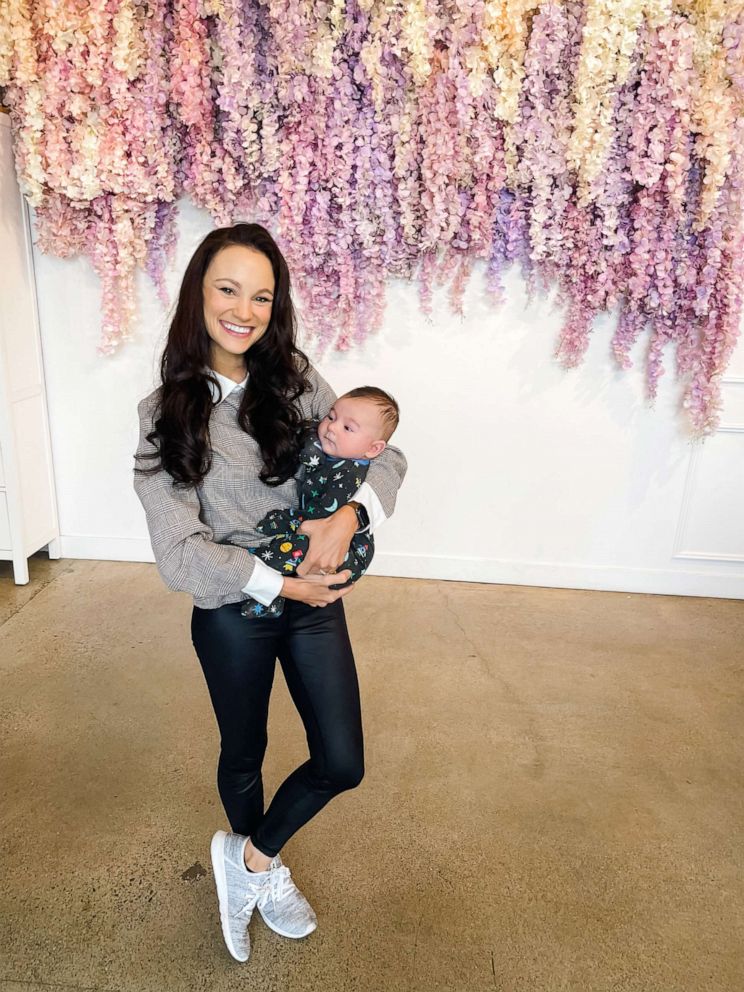
Calandrelli said she hopes going public with her experience will bring a shift in attitudes toward working parents.
"I want people to realize how this impacts women getting back into the workforce," she said. "This feels like it's just another system in place that discourages women from going back to work after they have a child and unfairly penalizes women more so than men who want to have a family and go to work."
